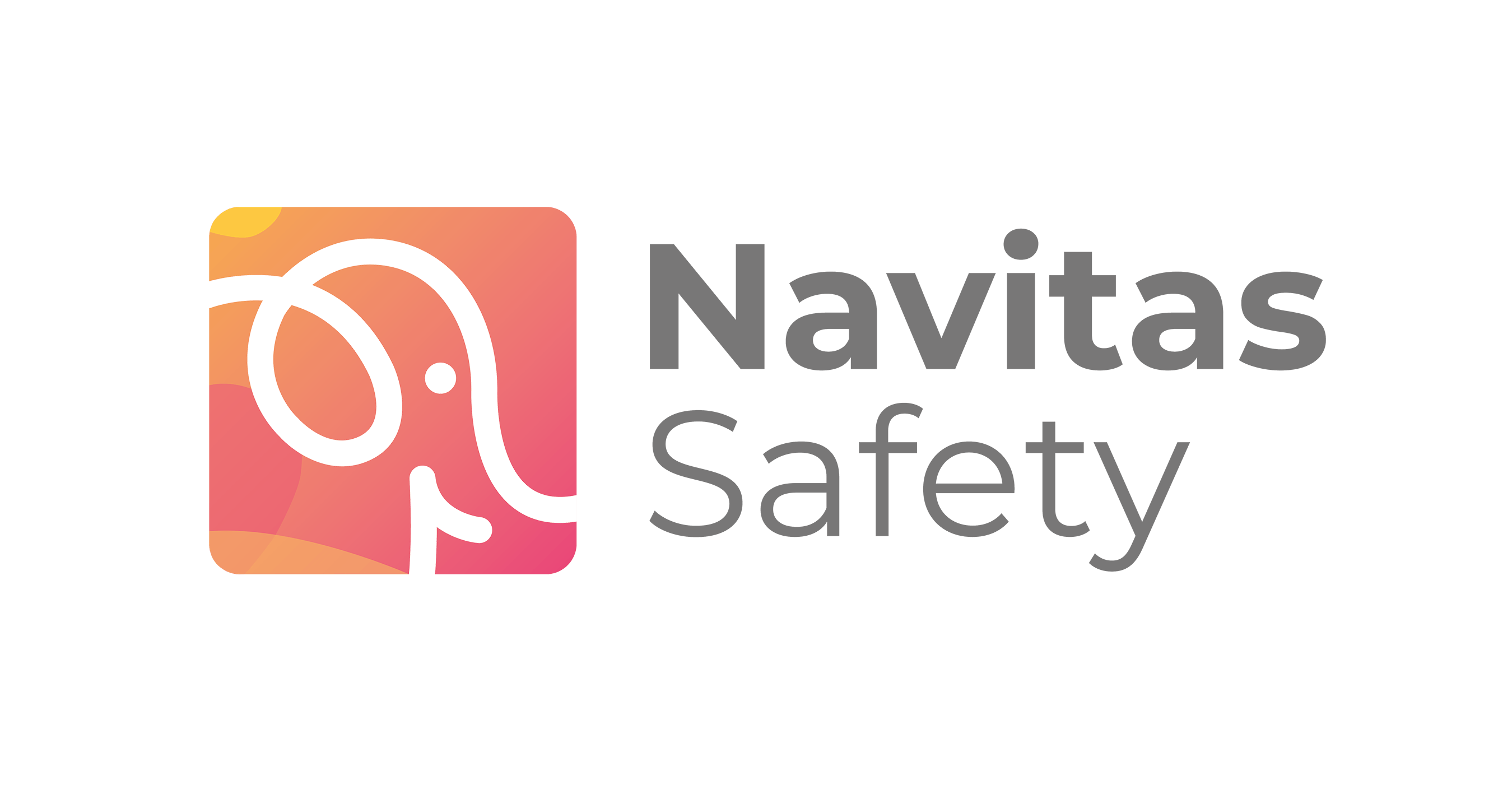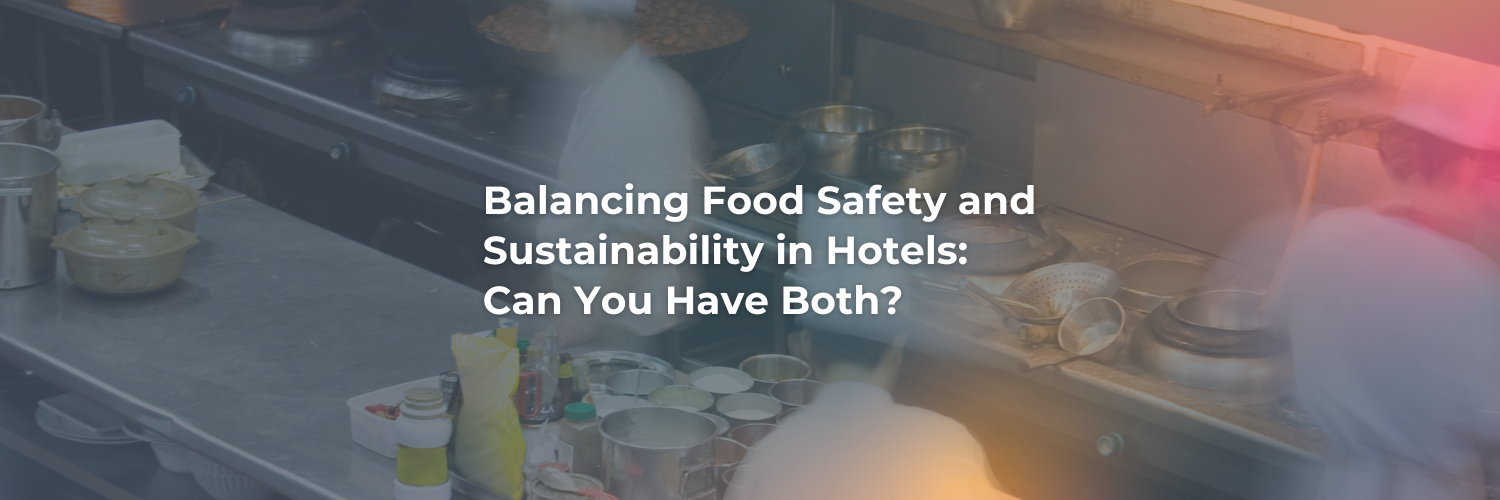Meeting food safety regulations while achieving ambitious sustainability goals is one of the biggest challenges hotels face today. Whether managing fine dining restaurants, all-day buffets, or room service, ensuring compliance and reducing environmental impact can feel overwhelming.
But here’s the good news: food safety and sustainability in hotels aren’t opposites. When approached strategically, they can complement each other, helping hotels exceed guest expectations, cut costs, and achieve long-term success.
Where Food Safety and Sustainability in Hotels Overlap
Sustainability is no longer just a trend for hotels—it’s an expectation. According to the UN’s Food and Agriculture Organisation, food waste accounts for 8–10% of global greenhouse gas emissions, and hotels contribute significantly through their dining operations. Meanwhile, 71% of UK travelers now consider sustainability a priority when booking accommodations (WRAP, 2023).
Here’s how food safety and sustainability align in the hotel sector:
- Minimising Food Waste: Effective monitoring and production scheduling prevents spoilage, saving money and reducing waste.
- Eco-Friendly Packaging: Sustainable materials used for room service and takeaways meet safety standards while cutting plastic waste.
- Sourcing Locally: Using nearby suppliers lowers emissions, with transport accounting for 11% of the food system’s carbon footprint (Our World in Data, 2022).
- Energy Efficiency: Managing appliance temperatures and switching to digital workflows reduce a hotel’s carbon footprint and operational costs.
By adopting innovative practices, leveraging digital solutions, and encouraging team engagement, hotels can turn these challenges into opportunities.
Four Strategies for Sustainable Food Safety in Hotels
1. Reduce Food Waste with Smart Technology
Food waste costs the UK hospitality sector billions annually, and a large share of this waste is avoidable. Hotels can combat this with Smart monitoring solutions like:
- Real-Time Temperature Monitoring: Digital sensors identify risks before they escalate, preserving food quality.
- Inventory Optimisation: Automated tools align stock levels with actual demand, reducing excess and spoilage.
Example in Action: A luxury hotel chain reduced waste by 25% and enhanced compliance by adopting digital monitoring systems, improving both sustainability and operational efficiency.
2. Rethink Your Supply Chain
Supply chains are central to reducing a hotel’s carbon footprint and maintaining high safety standards. Here’s how to make them more sustainable:
- Sourcing Locally: Partnering with nearby farms reduces transport emissions while ensuring fresher, safer food.
- Supplier Assessments: Digital tools like Navitas Safety’s software make it easier to vet suppliers for compliance and sustainability, ensuring consistency across locations whilst maintaining compliance with your company policy on the use of nominated / reputable suppliers
For example, hotels that integrate farm-to-table concepts not only reduce carbon miles but also deliver a superior dining experience that resonates with eco-conscious guests.
3. Go Paperless with Digital Compliance Systems
The average hotel generates significant paper waste annually through compliance documentation. Transitioning to digital systems not only eliminates this waste but also simplifies operational processes.
- Sustainable Recordkeeping: Cloud-based platforms improve data accuracy while reducing environmental impact.
- Streamlined Multi-Site Management: Standardised digital platforms ensure consistent compliance across all properties in a hotel chain.
Example in Action: A boutique hotel adopted digital compliance tools, saving over 20 hours per month on paperwork and reinvesting that time into guest experience improvements.
4. Invest in Smarter Staff Training
Around 30% of food waste in hotels results from preventable staff errors, such as improper storage or over-portioning (Too Good To Go, 2023). Smarter training can make a difference by:
- Preventing Mistakes: Interactive training ensures team members understand safe and sustainable food handling practices. It helps build consistent routines with food handling staff in line with standard operating practices, and therefore reducing mistakes.
- Boosting Engagement: Digital tools simplify complex tasks, making it easier for staff to embrace sustainability goals.
Why Sustainable Food Safety Makes Business Sense
Sustainability isn’t just a “nice-to-have” anymore—it’s a business imperative. Research shows that 68% of consumers are willing to pay more for sustainable options in hospitality (BCG, 2023). When combined with robust safety standards, sustainability offers hotels clear advantages:
- Stronger Guest Loyalty: Eco-conscious guests are more likely to choose hotels that align with their values.
- Reduced Costs: Cutting waste, optimising supply chains, and digitalising compliance drive profitability.
- Brand Differentiation: Leading on sustainability and safety sets hotels apart in a competitive market.
Turn Food Safety and Sustainability into Strengths for Your Hotel
Achieving both food safety and sustainability goals is not only possible—it’s profitable. By adopting digital tools, prioritising local sourcing, and empowering your staff, your hotel can exceed guest expectations, lower operational costs, and contribute to a greener future.
Navitas Safety works with leading hotel brands like Hilton, Virgin Limited Edition, and Marriott, helping them streamline compliance, cut waste, and achieve sustainability goals—all without compromising on safety.
Explore how digitalising your food safety processes can transform your operations






